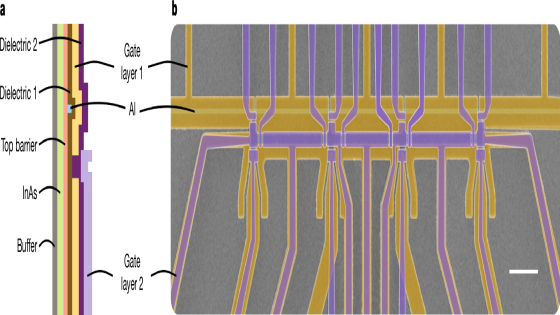Microsoft is once again making headlines in the world of quantum computing with its latest claim regarding topological quantum computing. On February 21, 2025, the tech giant announced progress in improving qubit stability through the use of Majorana zero modes (MZMs) and anyons. But can this breakthrough truly revolutionize quantum circuitry?
- Qubit stability is a major research focus.
- Topological quantum computing utilizes anyons.
- Microsoft claims progress with Majorana fermions.
- Majorana zero modes form logic gates.
- Independent replication is essential for confirmation.
- Competing efforts include hybrid mechanical qubits.
Microsoft’s New Approach to Topological Quantum Computing and Qubit Stability
Is this the breakthrough quantum computing has been waiting for? Microsoft’s recent research highlights the potential of using anyons and Majorana fermions to enhance qubit stability. This could mean fewer errors in quantum computations, which have long plagued the field. The implications for industries relying on quantum technology could be significant.
Understanding Majorana Fermions and Their Role in Quantum Computing
Majorana fermions are unique particles that can exist in a superposition of states. Their ability to form Majorana zero modes is essential for creating anyons, which can be braided to perform logic operations in quantum circuits. This method could lead to more reliable quantum computers. Here’s what you need to know:
- Majorana fermions differ from traditional Dirac fermions.
- Anyons can be braided to create logical operations.
- Improved stability could reduce error correction needs.
- Microsoft’s findings require independent verification.
The Significance of Qubit Stability in Quantum Computing
Qubit stability is a critical factor in the performance of quantum computers. Unstable qubits can lead to errors, making computations unreliable. Microsoft’s research suggests that using MZMs can create more stable qubit systems, which is a game-changer for the industry. What does this mean for the future of quantum technology?
Potential Impacts on the U.S. Tech Industry
If Microsoft’s claims are validated, the U.S. tech industry could see a surge in quantum computing applications. Enhanced qubit stability may lead to breakthroughs in various fields, including cryptography, materials science, and artificial intelligence. The race for quantum supremacy could shift dramatically, with significant implications for national security and economic competitiveness.
In conclusion, Microsoft’s latest advancements in topological quantum computing could pave the way for more reliable quantum systems. As the tech community eagerly awaits independent verification, the future of quantum computing remains an exciting frontier.

































